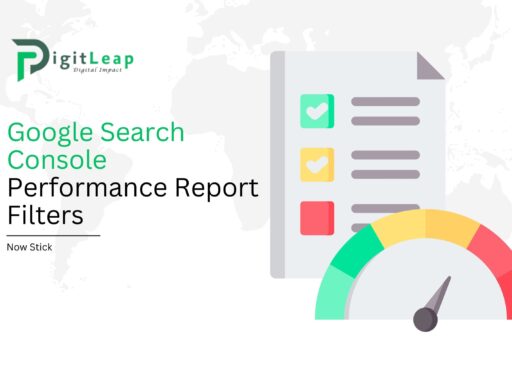Bing Expands Generative Search Experience and Deep Search
Bing has been making big moves lately in the world of search engines, stepping up its game with the expansion of its generative search experience and the introduction of Deep Search. As search evolves, so does the technology behind it, and Bing’s latest advancements show how serious they are about competing with Google. But what exactly are these new features, and how do they impact the way we search? Let’s break it down.
What Is Bing’s Generative Search Experience?
First, let’s talk about generative search. In a nutshell, generative search leverages artificial intelligence (AI) to create more insightful, human-like responses. Traditional search engines give you a list of links to click on, but generative search takes things a step further by trying to understand your query in a more nuanced way and providing richer, more complete answers.
Think of it as having a conversation with a super-smart assistant. Instead of just matching keywords, Bing’s generative AI works to comprehend the full context of your question and deliver relevant, meaningful information. This is especially useful for complex queries where you’re looking for more than a simple answer.
For example, if you ask Bing a question like, “What are the benefits of intermittent fasting?” generative search won’t just spit out a few links to blog posts. Instead, it will try to summarize key points about intermittent fasting’s benefits, giving you a detailed response based on multiple sources.
The Expansion of Generative Search
Bing’s recent expansion of its generative search features shows their commitment to improving user experience. Previously, these AI-driven responses were limited to specific types of queries. But with the new update, Bing is extending this capability across more searches, covering a broader range of topics and industries.
This means that whether you’re searching for travel tips, cooking recipes, or even complex technical information, Bing’s generative search will provide more in-depth and intelligent answers. It’s a major shift from the old search engine model, where users had to sift through multiple results and piece together the information themselves.
This expansion is powered by advanced machine learning algorithms and AI models that are continuously learning from user interactions. As people engage with Bing’s search engine, the AI becomes smarter, making future searches even more accurate and helpful.
Introducing Deep Search
While generative search focuses on delivering more comprehensive answers upfront, Deep Search digs into the core of search optimization. Deep Search allows Bing to crawl and index content more thoroughly, ensuring that even the most hidden or specific information on the web is easily accessible to users.
With Deep Search, Bing can dive into deeper layers of websites, uncovering content that might not be visible on the surface. This is particularly useful for websites with complex structures, such as e-commerce platforms or large blogs, where valuable information might be buried under several subpages.
By implementing Deep Search, Bing ensures that no stone is left unturned when it comes to delivering accurate and complete search results. It also means that more specialized or niche content has a chance to surface, giving users access to a wider range of information.
Why Is This Important for Search?
Both the expansion of generative search and the introduction of Deep Search represent significant changes in how we interact with search engines. These developments are designed to create a more seamless and intuitive search experience, making it easier for users to find exactly what they need without unnecessary clicks or confusion.
For marketers, SEO experts, and business owners, these changes mean that optimizing for Bing is more important than ever. With Deep Search crawling deeper into websites, it’s crucial to have well-organized and high-quality content that’s accessible at multiple levels. It also means that focusing on user intent, rather than just keywords, will become even more important as generative AI interprets queries in more sophisticated ways.
In other words, it’s no longer enough to just stuff your site with keywords and hope for the best. Now, you need to ensure that your content truly answers users’ questions and offers real value. Bing’s new capabilities are designed to reward websites that focus on user experience and rich, relevant content.
How Does It Compare to Google?
Bing’s advancements in generative search and Deep Search put it in closer competition with Google’s AI-driven search features. While Google is still the dominant search engine, Bing’s innovations show that it’s pushing the envelope, especially in terms of how AI can transform search.
Google has its own AI-powered search features, such as BERT and MUM, which also aim to understand user intent more deeply. However, Bing’s recent developments with Deep Search give it an edge when it comes to uncovering hidden or highly specific information, which could appeal to users looking for more in-depth or niche content.
Additionally, Bing has the advantage of integrating with other Microsoft services, such as Edge and Office, which could enhance its AI capabilities even further. For example, Bing’s search AI could potentially integrate with Microsoft 365 tools, providing more personalized search experiences for professionals.
What Does This Mean for Users?
For everyday users, Bing’s expanded generative search and Deep Search offer a more streamlined and efficient search experience. Instead of wading through pages of links, you can get more direct, well-rounded answers to your questions. This can save time and reduce the frustration of having to visit multiple sites to find what you’re looking for.
For example, if you’re planning a vacation and want to know the best time to visit Hawaii, Bing’s generative search might provide a detailed response that includes weather patterns, tourist seasons, and local events — all in one place. Meanwhile, Deep Search ensures that even the most obscure travel blogs or hidden pages with valuable information about Hawaii are brought to the surface.
Overall, these features make Bing a more user-friendly and powerful tool for getting both broad overviews and deep, specific information.
Conclusion
Bing’s expansion of generative search and the introduction of Deep Search represent a major leap forward in the world of search engines. As AI becomes more integrated into the search process, users can expect smarter, more intuitive results that cater to their exact needs.
For businesses, this is a reminder that SEO is evolving. It’s no longer just about getting to the top of the rankings with basic keywords. Now, you need to focus on creating quality content that provides real value, while ensuring your website structure is optimized for Deep Search crawling.
At DigitLeap, we specialize in helping businesses navigate these changes in search engine technology. Whether you’re looking to optimize your site for Bing’s latest features or improve your overall SEO strategy, we’re here to help you stay ahead of the curve. Let’s take your business to the next level with smart, data-driven strategies that work in today’s evolving digital landscape.
FAQs
Q1. What is Bing’s generative search?
Bing’s generative search uses AI to deliver more comprehensive, human-like answers to user queries, rather than just a list of links.
Q2. How does Deep Search work?
Deep Search allows Bing to crawl and index deeper layers of websites, ensuring that even the most hidden information is accessible to users.
Q3. How can I optimize my site for Bing’s Deep Search?
To optimize for Deep Search, ensure that your website is well-structured, with high-quality content that is accessible across all levels of the site.
Q4. Is Bing’s AI-powered search better than Google’s?
While both Bing and Google offer AI-driven search features, Bing’s Deep Search is designed to uncover more hidden or niche content, giving it a unique edge in certain areas.
Q5. How will Bing’s new features impact SEO?
Bing’s new features mean that SEO strategies should focus more on user intent and content quality, as AI-driven search engines prioritize meaningful, relevant answers over keyword-stuffed content.






